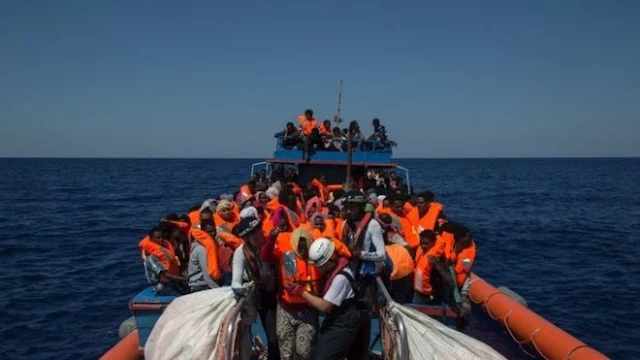President Donald Trump has signed into a law a bill which imposes new sanctions on Russia for their alleged meddling in the 2016 election.
The bill, which was signed in private at the White House, also imposes sanctions on Iran and North Korea.
Mr Trump accused Congress of overreach on the legislation, which "handcuffs" him from easing Russia penalties.
Moscow said the sanctions "put paid to hopes that our relations with the new American administration" would improve.
Russian Prime Minister Dmitry Medvedev also said this move meant the US had declared a "full-scale trade war" on Russia.
Iran said the new sanctions violated the nuclear deal and it would respond in an "appropriate and proportional" manner, reports the semi-official Isna news agency.
The Kremlin has denied interfering in the US election, and Mr Trump has rejected any allegations that his campaign staff colluded with Russia to help him win.
Hours after the US president signed the bill, Kremlin spokesman Dmitry Peskov said: "This isn't news.
"The thing is, the bill was approved and was going to automatically become law with or without the president's signature."
Moscow had already retaliated last week to Congress passing the bill, by expelling 755 people from its US embassy and consulates.
Several European nations, including Germany, are fearful of the economic consequences and European Commission President Jean-Claude Juncker has warned of "unintended unilateral effects that impact the EU's energy security interests".
In signing the Countering America's Adversaries Through Sanctions Act, Mr Trump attached a statement calling the measure "deeply flawed".
He accused Congress, which last week overwhelmingly passed the bill and sent it to the White House, of overstepping its constitutional authority.
"As president, I can make far better deals with foreign countries than Congress," he said.
Trump takes on Congress
Anthony Zurcher, BBC News, Washington
Donald Trump has signed the bill but he's clearly not happy about it. Hardly surprising, as any president would probably object to congressional efforts to curtail executive power included in this legislation.
As is becoming routine, however, this administration didn't draw its battle lines in the expected way.
There were several "signing statements". The first reads like a standard legalistic description of a presidential action with a bevy of "yes, but..." reservations.
Another statement is decidedly more Trumpian, complete with a shot at Congress for not passing healthcare reform and a closing boast about his business empire and negotiating prowess.
Releasing multiple signing statements with somewhat divergent tones is unusual, to say the least, and could be an indication that, despite the efforts of new chief of staff John Kelly, the administration is still not speaking with a unified voice.
The sanctions, which are also in response to Russia's annexation of Crimea, come months after President Barack Obama expelled 35 Russian diplomats.
- Russia: The 'cloud' over the White House
- Why are so many US diplomats in Russia?
Republican Lindsey Graham praised the bill after it passed, pointing out that Mr Trump's options were limited since there were enough votes to overcome a presidential veto.
"President Putin did something that nobody in America could do. He united the Congress," the South Carolina senator told CNN.
Senior Russian parliamentarian Konstantin Kosachev said that Mr Trump was "capitulating" by not standing up to Congress.
Mr Trump and Mr Putin met for the first time at the highly-scrutinised G20 summit last month in Germany.
Allegations by the US intelligence community that Russia interfered in the US election to aid Mr Trump are currently being investigated by Congress and a special investigator.
-




















